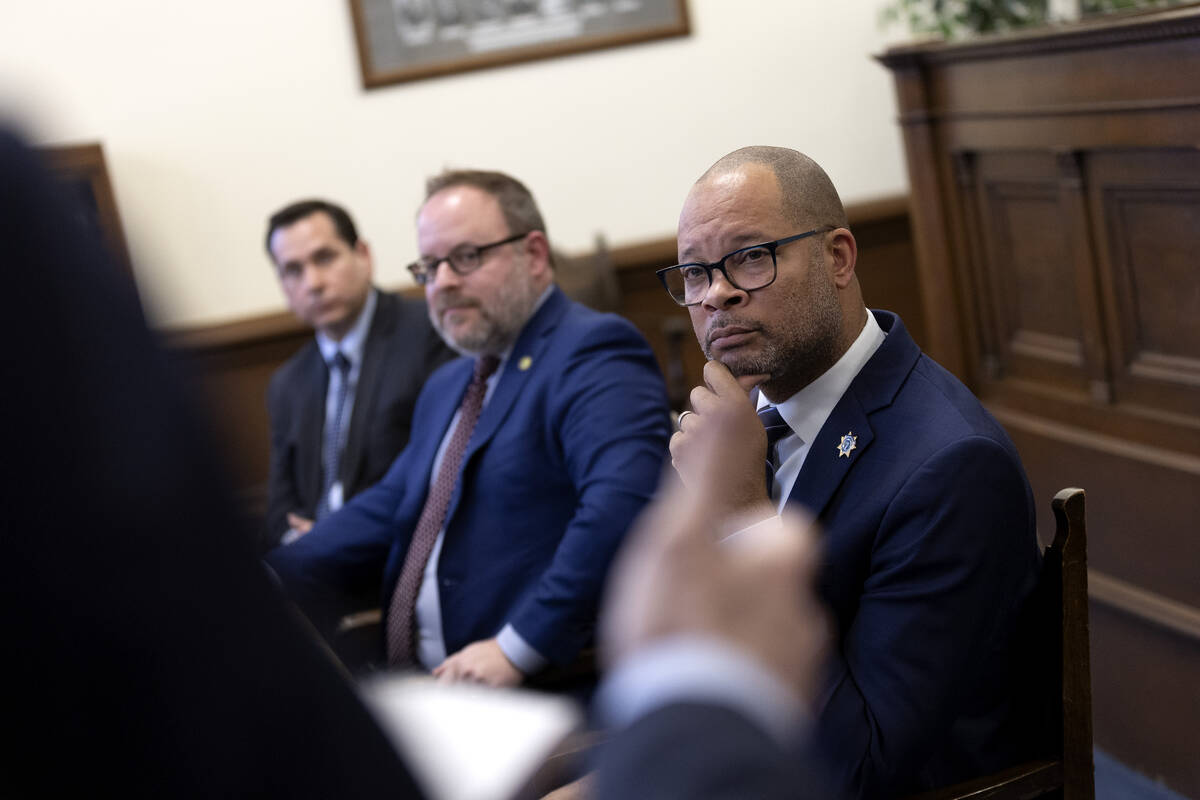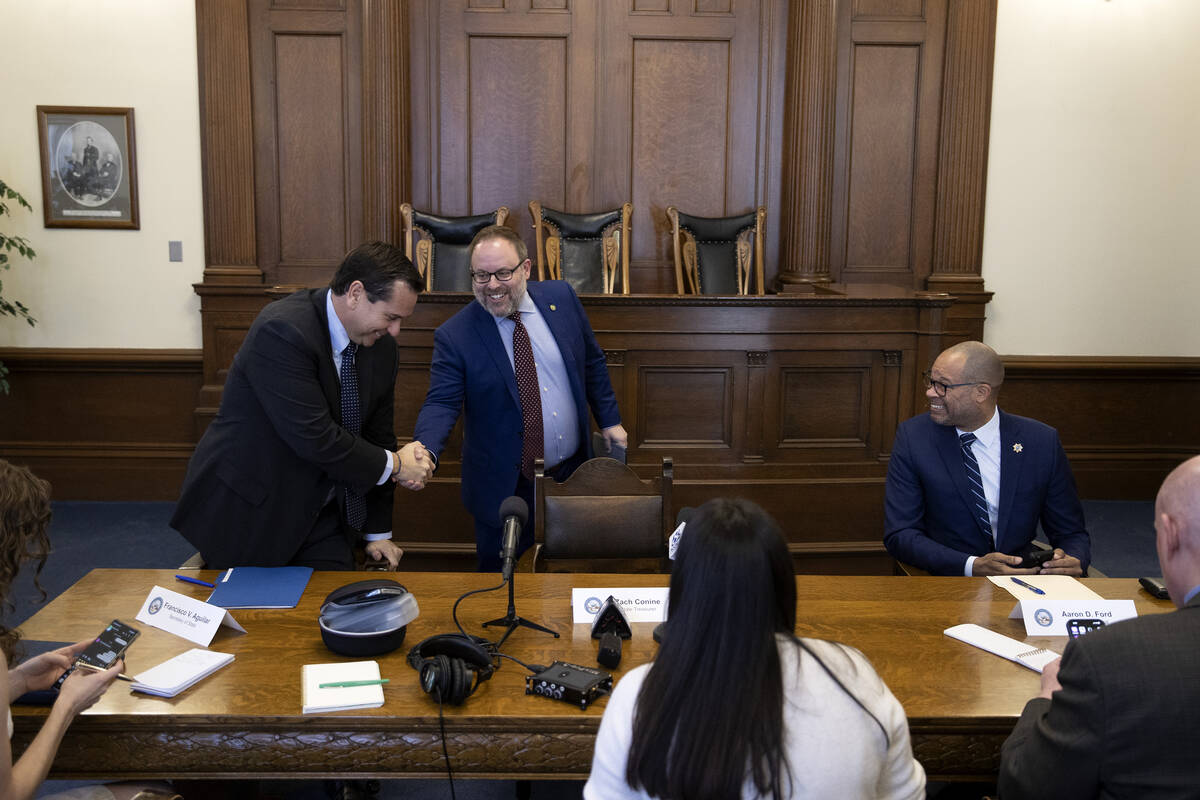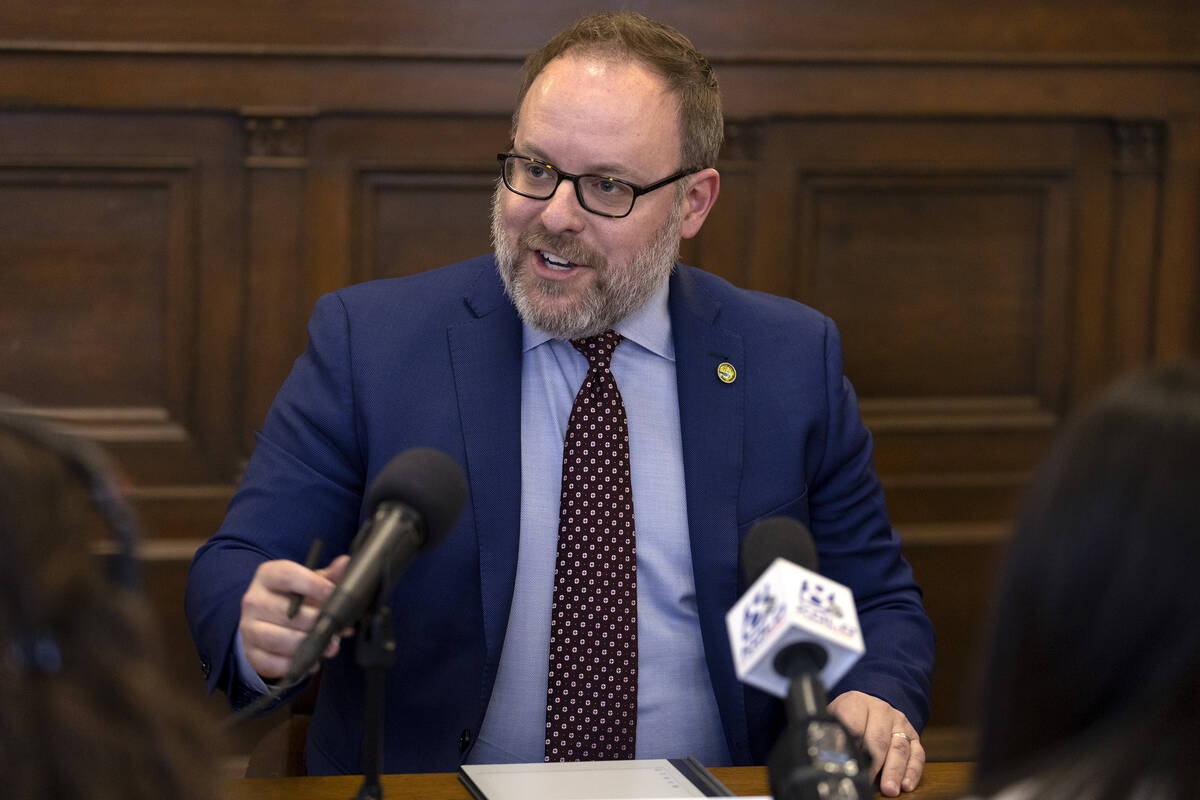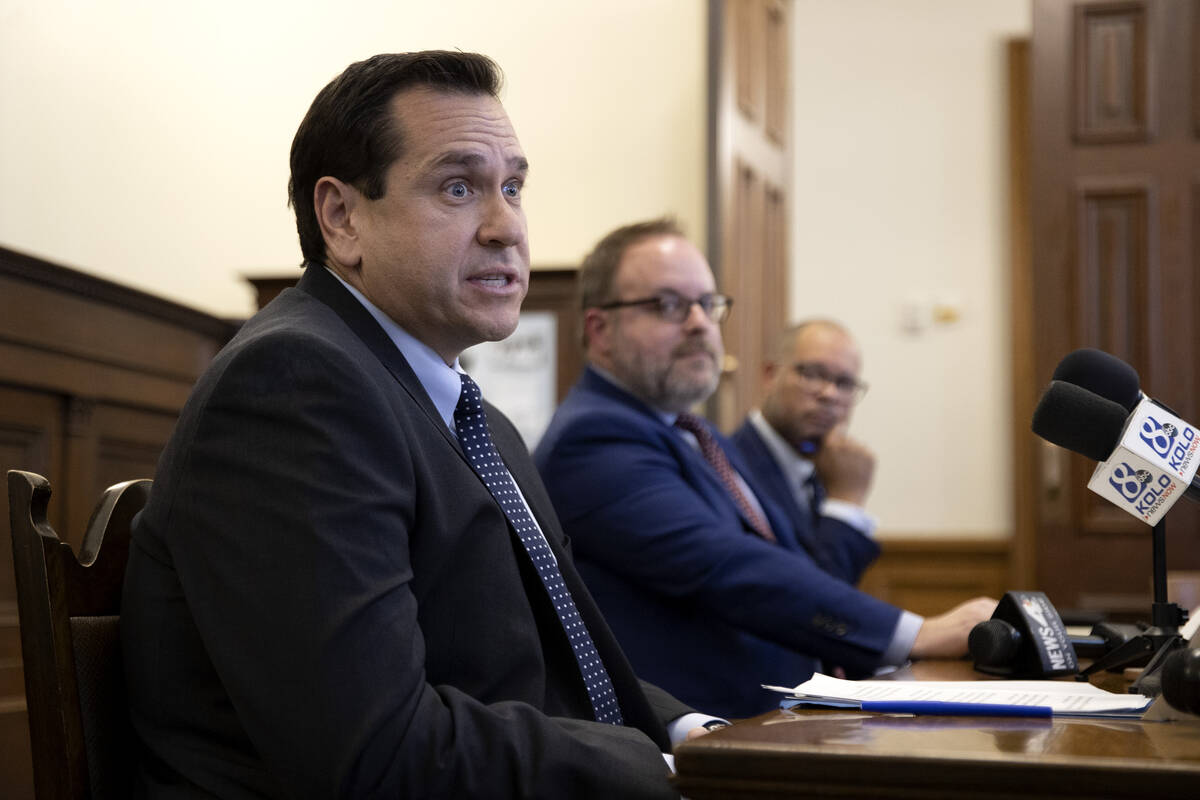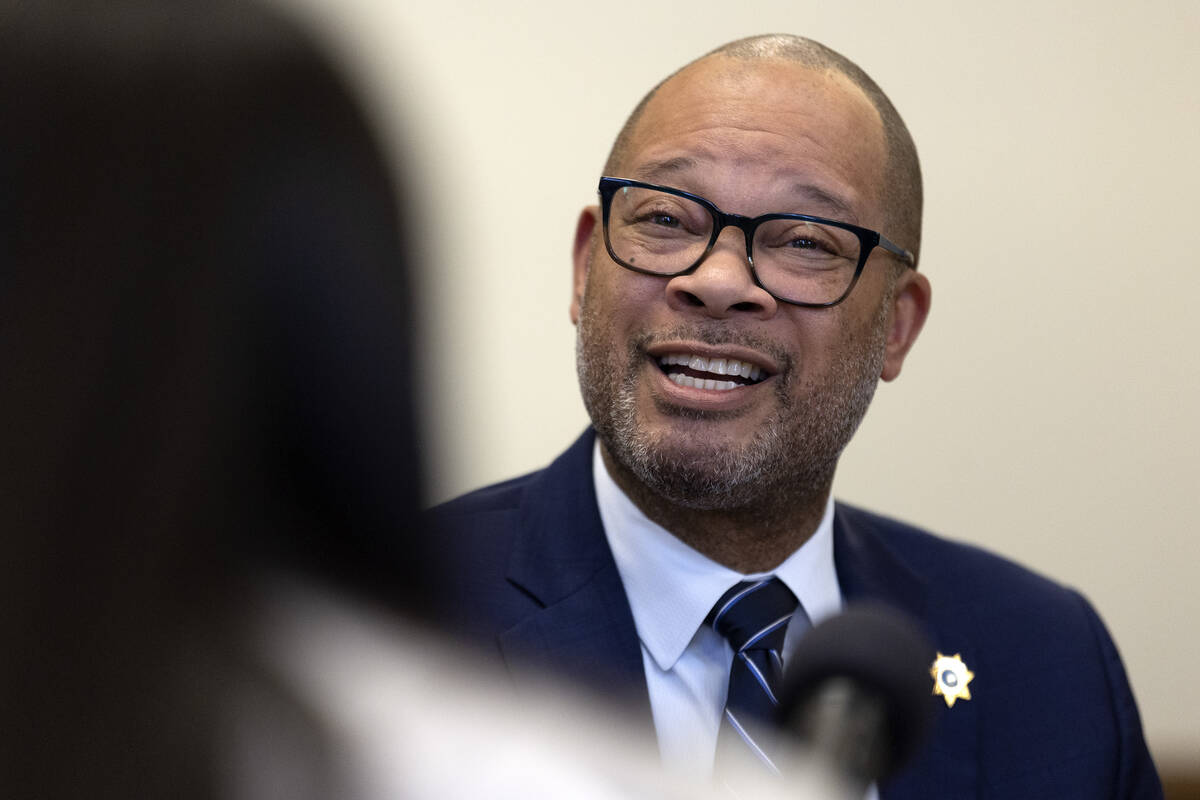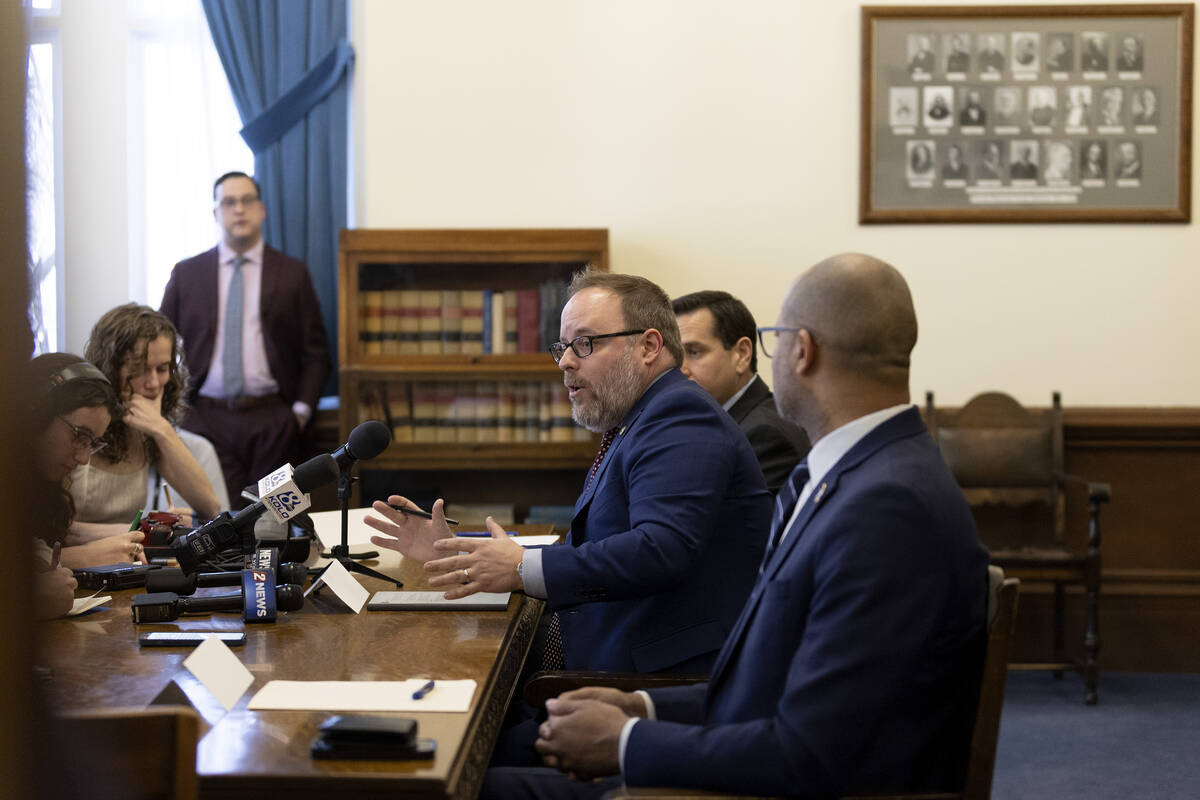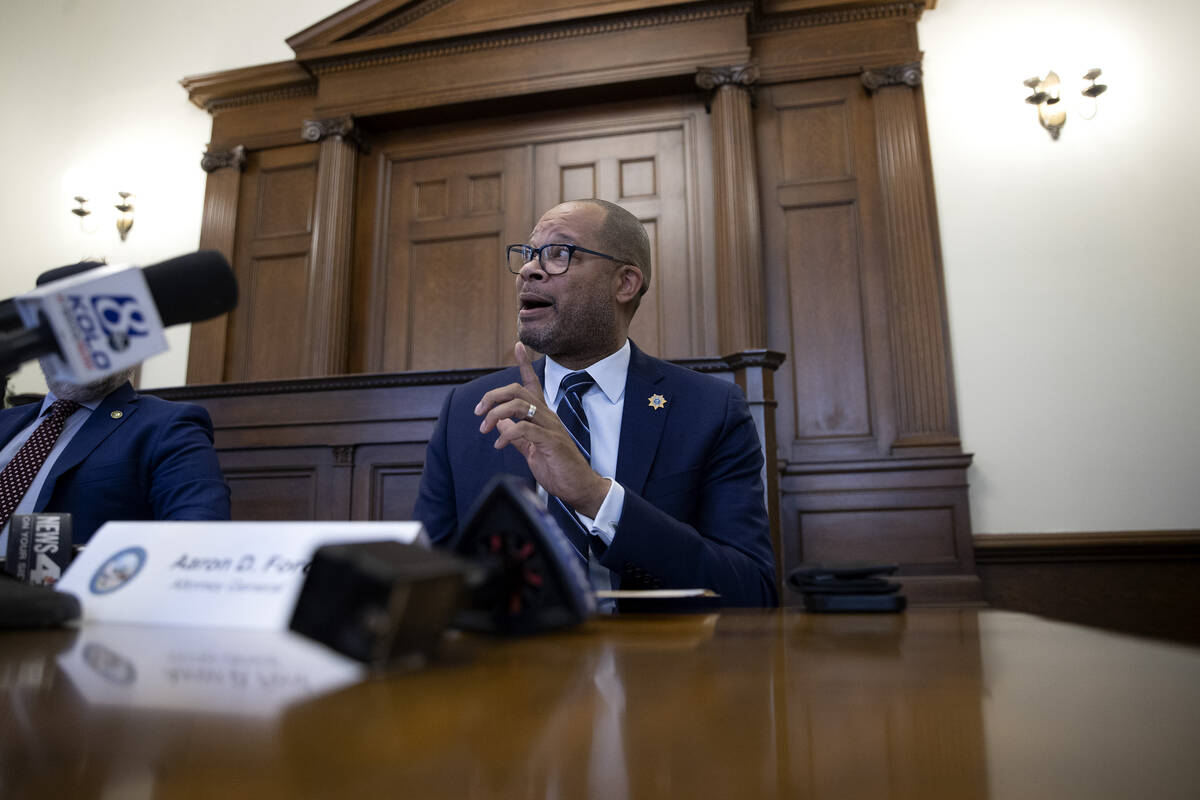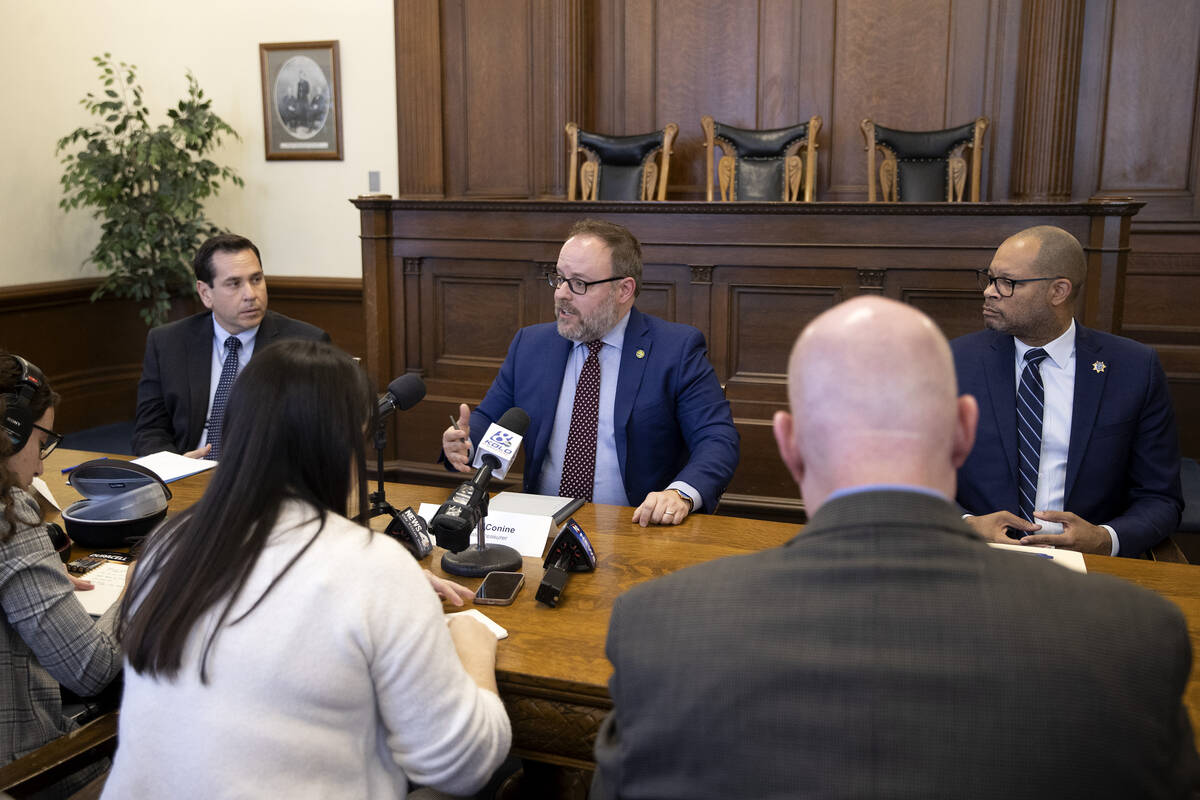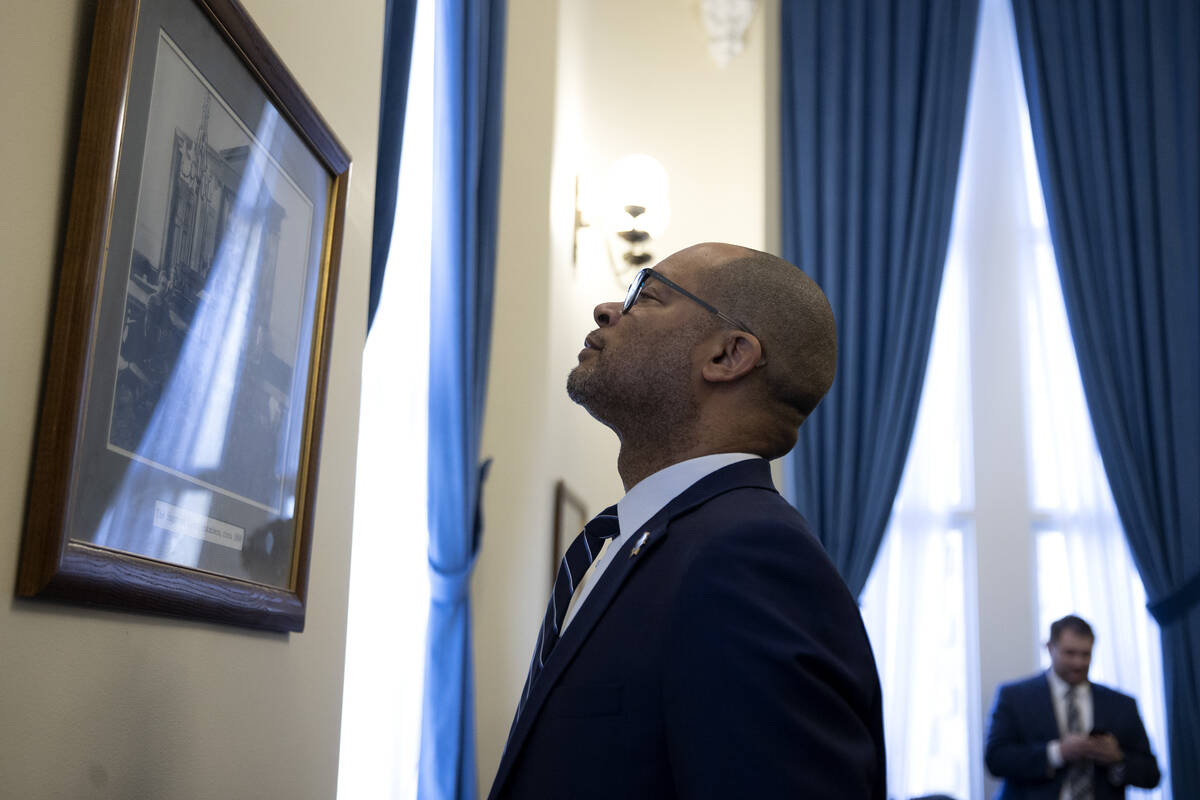Top state Democrats list legislative priorities
CARSON CITY — A new statewide voter registration system, tougher penalties for fentanyl trafficking and bonds for every child in the state whose birth was paid for by Medicaid were among the proposals floated by the state’s three Democratic constitutional officers on Thursday.
Treasurer Zach Conine, Secretary of State Cisco Aguilar and Attorney General Aaron Ford outlined their legislative priorities during a press conference in Carson City Thursday afternoon.
Centralized voter registration
Aguilar’s office is requesting $30 million to accelerate the implementation of a statewide voter registration system, a move which would transition individual counties’ voter registration system to a single statewide database in order to create “a more consistent election process.”
The decision to centralize voter registration was already made by the Legislature, but Aguilar said he wanted it to be done in time for the 2024 election.
Asked about moving up vote-by-mail deadlines so that all votes could be counted by election night, Aguilar said he instead preferred to help counties count the ballots they get under the current deadlines more quickly.
“At one point Clark County was able to process 8,000 ballots per hour. That wasn’t enough for the number of ballots they’re receiving prior to Election Day,” Aguliar said. “I think the conversation needs to be about capacity and what we’re doing to help those election workers process those ballots so that we call elections on election night.”
The secretary of state also suggested other bills, including one that would make it a felony to intimidate election workers. His office is also asking for $15 million to revamp the state’s small business portal, Silver Flume.
Cracking down on drugs
Ford, who is serving his second term as attorney general, said his office would be introducing a bill that would change criminal penalties surrounding fentanyl.
Ford said the bill is meant to go after those who traffic the potent and deadly opioid, and not those suffering from addiction.
“We’re gonna get to the heart of the matter because fentanyl is simply too deadly in small doses to treat the same, in terms of the same weight as other drugs,” he said.
The attorney general said he would be meeting with stakeholders in law enforcement agencies and the business community in order to get feedback about writing the bill so it would target actual traffickers and not simply users.
Ford’s office is also proposing a bill that would impose a civil offense on retail establishments that sell tobacco products to those under the age of 21. The office is also introducing legislation that would prevent guardians who defraud their elderly charges from using the fact that they had access to the person’s account as a defense for theft.
Student loans, baby bonds
Conine’s office proposed a student loan repayment for health care professionals who agree to work for five years in underserved communities. The bill would award an additional $120,000 of loan repayment to those professionals, and can be added on top of other loan forgiveness programs.
His office is also introducing a bill that would expand the state’s infrastructure bank with $75 million and would add workforce housing and education to the list of projects that are eligible to receiving funding from the bank.
“Workforce housing is incredibly important as we face another potential Tesla deal, which will bring another 3,000 jobs in Storey County,” Conine said. “We’ve worked with the governor’s office to try and make sure that that bill will provide the infrastructure bank the tools that Tesla and other large employers will need in order to build the workforce housing, that they will need for their employees.”
The office’s “most ambitious” bill is one that would give every baby born in Nevada whose birth is paid for by Medicaid a $3,200 bond that will be managed by the treasury’s office and grown until the child turns 18 years old. Then the money can be used by the individual for things such as education, housing or to start a business.
Conine said the program would cost between $40-45 million a year.
Contact Taylor R. Avery at TAvery@reviewjournal.com. Follow @travery98 on Twitter.



